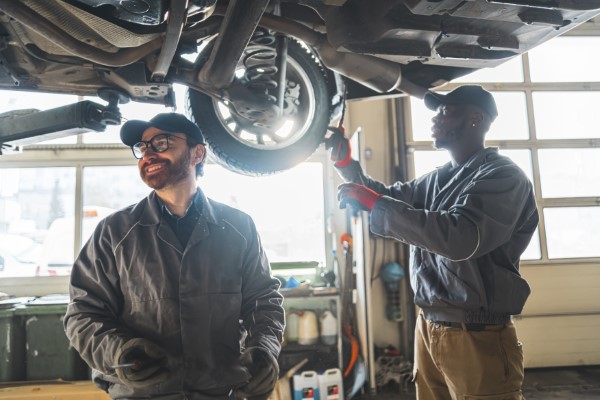
Your car is more than just a means of transportation; it's a complex machine composed of various systems and components working in harmony. To keep your vehicle running smoothly, it's crucial to understand and regularly service these essential elements.
Let's discuss five vital systems and components, and understand their functions and when they require servicing.
1. Engine System
What it Does:
The engine is the heart of your car, converting fuel into mechanical energy to propel your vehicle. It involves a network of components, including pistons, cylinders, and the fuel injection system.
When to Service:
Regularly check and change the engine oil, replace air filters, and adhere to recommended maintenance intervals. Unusual noises, reduced performance, or warning lights are signs that immediate attention is required.
2. Braking System
What it Does:
The braking system ensures your safety by slowing down or stopping your car. Components include brake pads, rotors, calipers, and brake fluid.
When to Service:
Replace brake pads as needed, check brake fluid levels regularly, and address any unusual noises or vibrations during braking. Squeaking or grinding sounds may indicate worn brake pads.
3. Transmission System
What it Does:
The transmission system manages the power generated by the engine, controlling the speed and torque of the wheels. Components include the transmission fluid, gearbox, and clutch.
When to Service:
Change transmission fluid based on the manufacturer's recommendations, address any delays in gear shifting, and be alert to odd smells or noises. An early response to transmission issues can prevent costly repairs.
4. Cooling System
What it Does:
The cooling system prevents your engine from overheating by circulating coolant through the radiator, hoses, and water pump.
When to Service:
Regularly check coolant levels, inspect for leaks, and replace coolant as recommended by your car's manual. Overheating, visible leaks, or a rising temperature gauge signal potential cooling system issues.
5. Suspension System
What it Does:
The suspension system ensures a smooth ride by absorbing shocks and maintaining contact between the tires and the road. Components include shocks, struts, and the steering system.
When to Service:
Address any signs of a rough ride, uneven tire wear, or steering difficulties. Inspect shocks and struts for leaks and replace them if they show signs of wear. Regular alignment checks can also enhance the longevity of your tires.
Remember, a well-maintained car not only performs better but also ensures a safer and more enjoyable driving experience. That's why we invite you to DRIVE AutoCare - our team of techs will take care of everything from maintenance to complex repairs!